- Home
- Jude Deveraux
Eternity Page 5
Eternity Read online
Page 5
If she thought the house was bad outside, she wasn’t prepared for the inside. Grim, she thought. A bleak, unhappy, colorless place that was guaranteed to make its inhabitants wretched. The walls were of bare planks darkened with soot from many fires. In the middle of the room was a dirty, round table with four mismatched chairs, one of which was leaning to one side from a leg that was too short.
In the corner of the single room was a cabinet that seemed to be the kitchen of the house, for the top of the cabinet was piled high with chipped dishes that hadn’t been washed in so long that they were dusty as well as encrusted with dried food.
As Carrie stood with her back to the broken door and looked about the dreadful place, at first she didn’t see the children. They were standing in the shadows of the doorway to what Carrie assumed was the bedroom, standing quietly, watching, waiting to see what was going to happen.
They were beautiful children, even more beautiful than their photograph showed. The boy looked as though he might grow to be more handsome than his father, and it was obvious that the girl would someday blossom into splendor.
In spite of their good looks, the children looked as unhappy as the house did. Neither of them had combed their hair in days, maybe months, and, although they were fairly clean, their clothes were dirty and torn and had that faded look that only hundreds of washings could give to cloth.
As Carrie stood looking at them, she knew that she had been right: This family needed her.
“Hello,” Carrie said as cheerfully as she could manage. “I’m your new mother.”
The children looked at each other then back at Carrie, their eyes wide in wonder.
Carrie went to the table and set her bags on it, noting that the table was greasy and needed a good cleaning. Sniffing around her legs, Choo-choo pulled to be free, and when she unsnapped his leash, he went immediately to the children, both of whom looked down at the animal in astonishment. Neither of them made any move to touch the little dog.
Opening the first case, Carrie withdrew a porcelain-headed doll, an exquisite creature, made in France and dressed by hand all in silk. “This is for you,” she said to the girl, then waited for a seemingly endless moment until the child came forward to take the gift. She looked as though she were afraid to touch the elegant doll.
Carrie took the sailboat from the bag. “And this is for you.” Holding out the boat to the boy, she saw by his eyes that he very much wanted to take the present, and he even took a step forward, but then he stepped back and shook his head no.
“I brought it just for you,” Carrie said coaxingly. “My brothers sail ships from Maine to all over the world, and this is very much like one of their ships. I’d like for you to have it.”
The boy looked as though he were fighting some inner demon, fighting the part of him that so much wanted the toy, and fighting the other part of himself that for some reason wanted to refuse the boat.
At last the boy tightened his lips—and in doing so looked exactly like his father—and said belligerently, “Where’s Papa?”
“I believe he’s helping a man with my baggage.”
The boy gave a firm nod then ran out the door, obviously used to the broken hinge as he seemed to work it without nearly killing himself.
“Well,” Carrie said and sat down on one of the unbroken chairs. “I think he’s angry at me. Do you know why?”
“Papa said that you were going to be ugly and we weren’t to mention it. He said that lots of things were ugly, but they couldn’t help it,” the girl said, then cocked her head to one side as she studied Carrie. “But you’re not ugly at all.”
Carrie smiled at the little girl. For all that she couldn’t be more than five, she was certainly articulate. “It seems to me to be a little unfair to be angry just because someone isn’t ugly.”
“My mother is beautiful.”
“Oh, I see,” Carrie said, and she did see. If her own beautiful mother died and her father had married another beautiful woman, Carrie wouldn’t have been too happy about it either. If her father had remarried, she would have much preferred him to marry an ugly woman, a very, very ugly woman.
“You don’t mind that I’m not ugly, do you? I can be ugly if you want.” At that Carrie began to make faces, pulling her eyes down with her fingers, and pushing her nose up with her thumb.
The little girl giggled.
“Think Temmie would like me better if I looked like this?”
Giggling again, the child nodded.
“Why don’t you come here and let me brush your hair and you can tell me what you’re going to name your doll.”
When the child hesitated, as though trying to decide if this would be something her father would want her to do, Carrie withdrew her silver-backed hairbrush from her case. After a little gasp of awe at the sight of the pretty brush, the child went to Carrie and took her place between Carrie’s knees and allowed her to gently brush her hair.
“And your name is Dallas?” Carrie asked, stroking the child’s fine, soft hair. “Isn’t that a rather unusual name?”
“Mother said it was where I was made.”
“Like in a factory?” Carrie said before she thought, then cleared her throat, glad the girl couldn’t see her red face. “Oh, I see. What are you called? Dallie?”
The child seemed to consider that for a moment. “You can call me Dallie if you want.”
Behind her, Carrie smiled. “I should be honored to be allowed to call you a name that no one else calls you.”
“What’s his name?” Dallie pointed to Choo-choo.
Carrie told her. “It’s because the day my brother gave him to me, he sneezed many times. Do you know that since that day I don’t think he’s sneezed once?”
When Dallas didn’t laugh but nodded solemnly, Carrie felt a tug at her heart. It wasn’t right that a child as young as she was should be so serious. “There now,” Carrie said. “Your hair is very tidy and what lovely hair it is, too. Would you like to look?” When she held out a silver-backed mirror, the child took it and looked at herself as though she were studying herself.
“You are very pretty,” Carrie reassured her.
Dallie nodded. “But not beautiful. Not like my mother.” She handed the mirror back to Carrie.
What an odd thing for a little girl to say, Carrie thought as she looked about the cold, dreary little room. “Shall we see about dinner? What is there in the house to eat?”
“Papa said that you would make dinner. He said that you knew how to cook anything in the world and that you would never let us go hungry.”
Carrie smiled. “Then that’s what I’ll have to do.” Standing up, she went to the single cupboard and opened the doors. Her heart sank when she saw how little there was inside. The sight of half a loaf of stale bread, three cans of peas, and nothing else made a surge of anger at Josh shoot through her. Even if she were the greatest cook in the world, she wouldn’t be able to prepare a meal with these few ingredients.
She searched the cupboard, and way in the back, she found a jar of homemade strawberry preserves. Withdrawing the jar, she smiled. “For dinner tonight we shall feast on bread and jam. I have a fat packet of China tea in my case so we shall be able to have a very elegant tea party.”
“We can’t eat that,” Dallas said, motioning toward the jar of jam. “Papa says that we must save them for something special. Aunt Alice made them. They were a present.”
Carrie smiled. “Every day is special. There is never a day when you can’t find something to celebrate, and today, especially, there are lots of things to celebrate. I have arrived and you have a new doll and Temmie has a new toy and—”
“He won’t like for you to call him Temmie. He’s Tem and that’s all.”
“Oh, I see. He’s too old to be Temmie, is that it?”
Dallas nodded solemnly.
Carrie smiled. “I’ll try to remember that he’s too old to be a Temmie. Now, let’s get the table set for dinner.”
It was
obvious that the child had no idea what Carrie meant by “setting the table,” so Carrie set her bags on the floor and withdrew a lovely, enormous Paisley shawl. The reds and pinks of the shawl seemed to sparkle in the dull little room that was lit by a single candle set on the mantelpiece. Dallas’s eyes widened as she watched Carrie spread newspapers from a short stack by the fireplace on the table, then spread the shawl over the papers. Next Carrie began looking for clean dishes but could find none. She gave a glance at the stack of dishes in the sink but didn’t think much about them. At home, Carrie knew that dishes went out of the dining room dirty and came back clean, but she wasn’t sure what happened in between.
Since there were no clean dishes, Carrie looked in her bag and withdrew four linen handkerchiefs. “We shall have a picnic,” she said as she spread them on top of the shawl then withdrew four small silver tumblers from the bag. She always carried them when traveling, because her mother said that she was never to use the communal cups that the other passengers used.
Standing to one side, Dallas watched all of this in fascination, and after Carrie brought the silver cups from the bag, the child went to peer into the bag as though it were something from a fairy tale and contained everything in the world.
Removing her cut-crystal hairpin holder from the bag, Carrie wiped it out with a clean handkerchief and filled it full of strawberry preserves. Dallas didn’t remember ever having seen anything but jars put on the table, so this concept of putting food into pretty dishes was new to her. Carrie sliced the bread and placed it on another handkerchief in the middle of the table, then stepped back to look at the results.
“Rather pretty, don’t you think?”
Dallas could only nod. Candlelight played on the silver tumblers and the crystal of the hairpin jar, and the colors of the shawl glowed. It was the most beautiful table Dallas had ever seen. Next to this woman who said she was her new mother and the doll that Dallas was clinging to and that little dog, the table was the most beautiful thing Dallas had ever seen in her whole life.
When Dallas looked up and smiled at Carrie, Carrie smiled back.
It was at that moment that Josh and his son came back into the house, and Carrie saw that having to unload twenty-some trunks full of women’s clothes had not put Josh into a better mood.
“All of them are stacked in the shed,” Josh said, his mouth rigid, his jaws clamped together. “Of course, there’s no room for the horse’s feed and the tools had to be set outside, so if it rains tonight we’re sunk, but those trunks of yours are inside, all safe and warm and protected.” He looked at the table, which his son was staring at in open-mouthed astonishment. “What’s this?”
“Dinner,” Carrie said proudly, waiting for him to admit that he had been wrong about her. He had promised his children their new mother would feed them dinner tonight, and that’s just what she was doing. “The children are hungry.”
Without relinquishing his frown, Josh picked up the crystal jar full of jam and looked at the bread so neatly sliced and laid out on the monogrammed handkerchief. “Bread and jam,” he said contemptuously. “That’s not a very good dinner for children, is it?”
Carrie glared at him, thinking that he was incapable of admitting when he was wrong. “I used what there was. No one, not even the paragon of work that you were expecting, could cook a meal from the little food that you have in this house.”
“There are canned goods,” Josh said, not giving an inch. “You can at least heat something from a can, can’t you? And why has the fire been allowed to die down? Why didn’t you build it up? It’s cold in here.”
The children looked from Carrie to their father in consternation. He had talked to them at length about how they were to be nice to this woman who was coming to take care of them, yet he wasn’t being very nice to her at all.
Carrie just looked at Josh, refusing to reply to his accusations.
At last Josh shook his head in disbelief. “I see. You have no idea how to open a can, do you? And it’s my guess that you’ve never so much as thrown a log on a fire.”
He was right, but Carrie wasn’t going to tell him so. Instead, she just stood where she was and looked at him.
Looking from one to the other, Dallas felt like bursting into tears. “Papa, I like bread and jam. Would you like to see my doll? You can name her if you want, but if you like the name Elsbeth, so do I.”
As Carrie watched him, Josh’s face changed when he looked at his daughter. So far, she had seen two expressions on his face: She had seen him when he didn’t know who she was and desired her, and she had seen rage on his face since he’d found out who she was. But now she was seeing love on that dark, handsome face—a face she already felt she knew so well. She watched as he smiled at his daughter, then sat down and asked to see her doll. Carrie listened as Dallas told her father all about the doll, which was surprising because Carrie hadn’t been aware that the child had even looked at the toy. Dallas showed her father the doll’s pretty underclothes and its legs made of stuffed kid leather.
“I think Elsbeth is the best name for her,” Josh said softly, stroking Dallas’s hair, noticing that it was brushed and neat, and for one brief flash, he looked at Carrie in gratitude.
“I brought Tem a gift too,” Carrie said as she picked up the boat from where she’d put it on the mantelpiece.
Tem gave a longing look at the toy, but turned to his father for permission to take it. Carrie could see by Josh’s face that he didn’t want his children to take anything from her, but she also saw that his children’s happiness meant more to him than any feud in the world. With a smile, Josh nodded to his son.
Hesitantly, Tem stepped forward and took the boat, then went back to stand near his father, the boat behind his back, as though he didn’t dare look at it. Even though Tem didn’t look at the boat, Carrie saw that he was stroking it with his hands.
“Papa,” Dallas said, “I’m hungry.”
With a sigh, Josh looked at the table, then nodded for his children to take their seats.
“If you have a teapot, I could make tea,” Carrie said softly, for she was ready to make amends. This man who looked at his children with such love was the man she’d seen in the photo, the man she’d fallen in love with and had lied her way into a marriage with.
But when Josh looked up at Carrie, the love left his face. “You can make tea in a pot?” he practically sneered. “But then I guess that’s a ladylike occupation, isn’t it?” Angrily, he got up, tended to the fire, put an iron kettle of water on to boil, then rummaged under the stack of dirty dishes until he found a chipped teapot, which he set on the table.
They sat in silence while the water heated, all of them morose, looking down at the handkerchiefs that served as plates and saying nothing.
How ridiculous, Carrie thought, looking at the three of them. How utterly absurd to be alive and healthy and to be so sad. Poverty and living in a house like this didn’t make it necessary for people to be gloomy.
“I have seven older brothers,” she said brightly into the silence. “And every one of them is as handsome as a prince in a fairy tale, and all of them travel all over the world on ships. Some months ago, not long before your father and I were married—” she ignored Josh’s startled look at this statement—“my brother Jamie brought Choo-choo to me. Would you like to hear some of the stories he told me about the places he visited? He went to China.”
“Yes, oh please, yes,” Dallas said, her voice and face showing that she was practically begging for some relief from the never-ending sadness.
Carrie looked at Tem, and although he tried to act as though he couldn’t care less what Carrie did, his eyes were eager. He nodded his consent.
Carrie looked at Josh and waited, forcing him to be part of the family.
“Whatever pleases the children,” he said gloomily.
With enthusiasm, Carrie began to tell what Jamie had told her about China and especially about the palace her brother had visited, describing in l
urid detail the silks and ornaments. Maybe she embellished a bit, but then maybe Jamie hadn’t told her all there was to tell. Leaning forward, in a voice reserved for ghost stories, she told the children about the custom of binding the feet of Chinese women.
During this, the water came to a boil, she got up, brought the kettle to the table, filled the teapot with water and her delicious tea, then began heaping strawberry jam on thick slices of bread, and handed them round to the children and Josh. Since Carrie was by this time telling about foot binding, Josh was as absorbed in her story as the children were, and he didn’t remember to tell her that he could serve himself.
Carrie talked all through the meal, at one point telling a Chinese fairy tale about true love that had ended abruptly and the woman had become a ghost. When all of the bread and jam was gone, she went to her case and withdrew a box of chocolates and served two pieces to each person while she finished telling her ghost story.
When all the food and all the tea were gone, Carrie stopped talking, and for a moment there was silence at the table.
“Golly,” Dallas said into the silence, her eyes wide.
“Is any of that true?” Tem asked, trying to sound like a skeptical grownupx.
“All of it. My brothers have been all over the world, and they’ve told me the most extraordinary tales. You should hear about India. And then there’re the desert countries and Egypt, and two of my brothers have fought pirates.”
“Pirates!” Tem gasped, then caught himself.
“And one of my brothers was in the U.S. Army and fought Indians, but he says he liked the Indians better than he did most of the soldiers. I brought some things my brothers have given me, things they bought or stole or traded for on their trips.”
“Your brothers stole things?” Dallas asked, aghast. “Uncle Hiram says that stealing is a sin.”
“It is and it isn’t,” Carrie assured her. “One of my brothers stole a pretty young woman from a slave trader, but that’s another story that I’ll have to save for another night. Right now I think it’s time you two were in bed.”
Again there was silence, but then Josh spoke. “Yes, of course. It’s time for bed. Past time. Now scoot.”

 Eternity
Eternity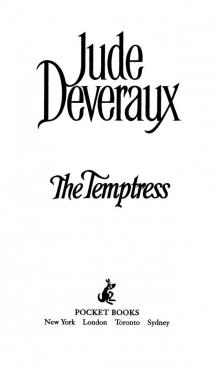 The Temptress
The Temptress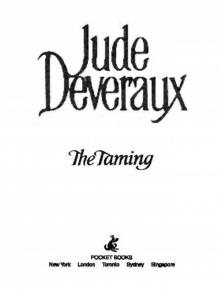 The Taming
The Taming True Love
True Love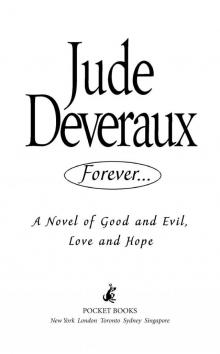 Forever...
Forever...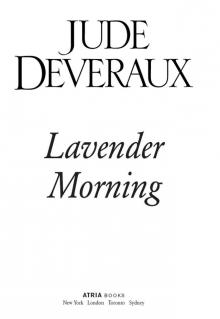 Lavender Morning
Lavender Morning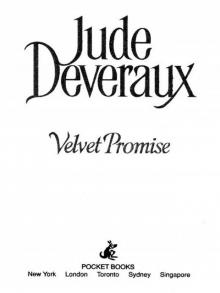 The Velvet Promise
The Velvet Promise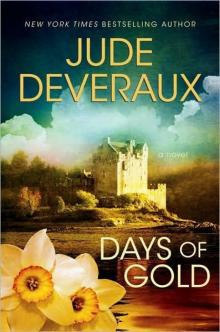 Days of Gold
Days of Gold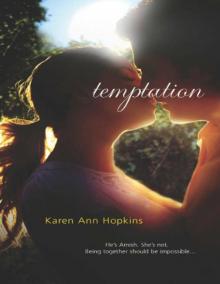 Temptation
Temptation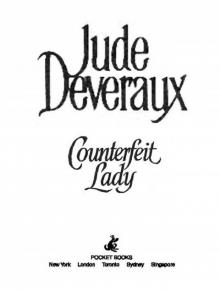 Counterfeit Lady
Counterfeit Lady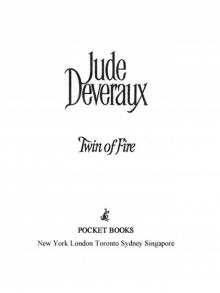 Twin of Fire
Twin of Fire Remembrance
Remembrance Velvet Angel
Velvet Angel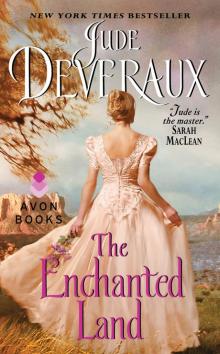 The Enchanted Land
The Enchanted Land Just Curious
Just Curious Wild Orchids
Wild Orchids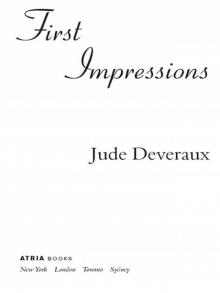 First Impressions
First Impressions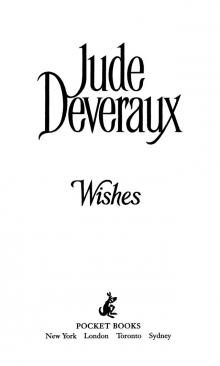 Wishes
Wishes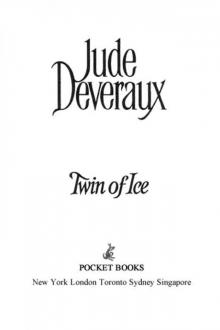 Twin of Ice
Twin of Ice Ever After
Ever After An Angel for Emily
An Angel for Emily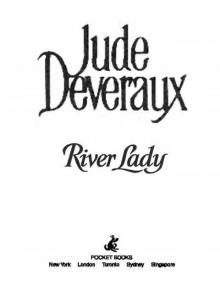 River Lady
River Lady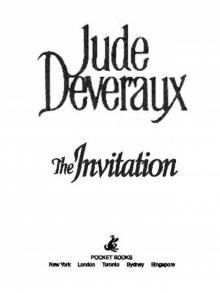 The Invitation
The Invitation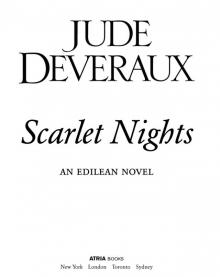 Scarlet Nights
Scarlet Nights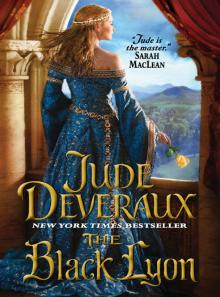 The Black Lyon
The Black Lyon High Tide
High Tide The Girl From Summer Hill
The Girl From Summer Hill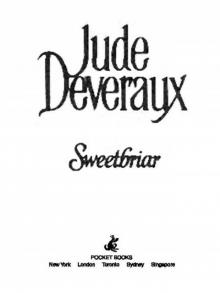 Sweetbriar
Sweetbriar As You Wish
As You Wish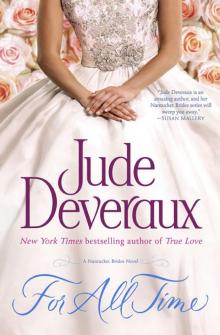 For All Time
For All Time Secrets
Secrets The Blessing
The Blessing Upon a Midnight Clear
Upon a Midnight Clear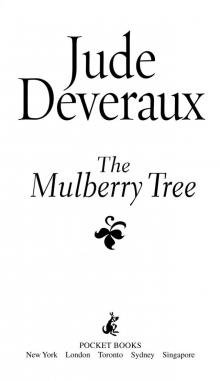 The Mulberry Tree
The Mulberry Tree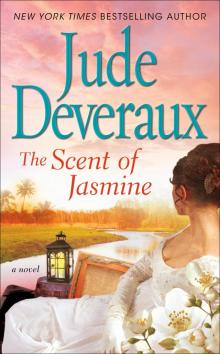 The Scent of Jasmine
The Scent of Jasmine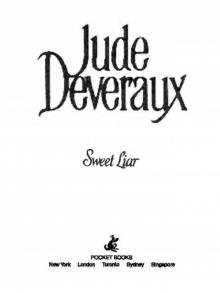 Sweet Liar
Sweet Liar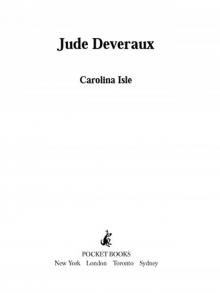 Carolina Isle
Carolina Isle Holly
Holly A Knight in Shining Armor
A Knight in Shining Armor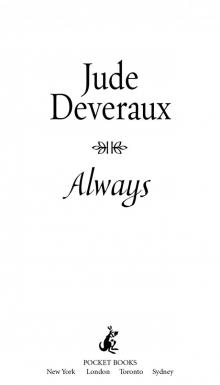 Always
Always The Duchess
The Duchess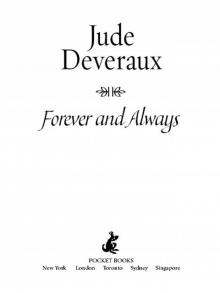 Forever and Always
Forever and Always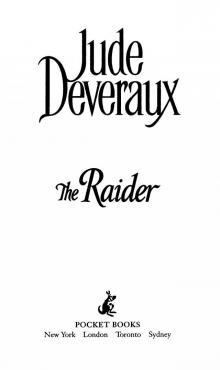 The Raider
The Raider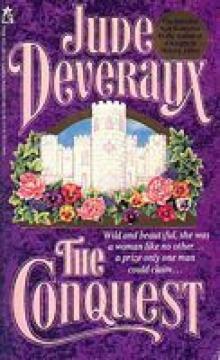 The Conquest
The Conquest Moonlight in the Morning
Moonlight in the Morning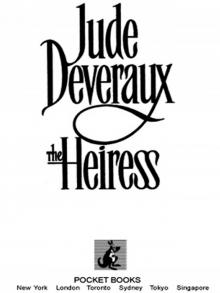 The Heiress
The Heiress Stranger in the Moonlight
Stranger in the Moonlight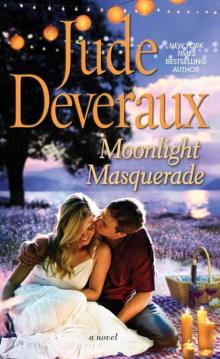 Moonlight Masquerade
Moonlight Masquerade Change of Heart
Change of Heart The Awakening
The Awakening Velvet Song
Velvet Song Someone to Love
Someone to Love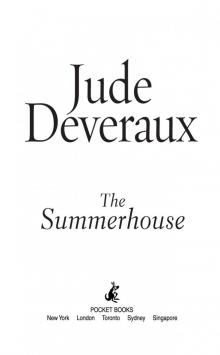 The Summerhouse
The Summerhouse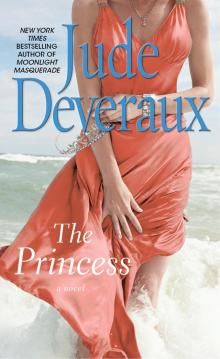 The Princess
The Princess Highland Velvet
Highland Velvet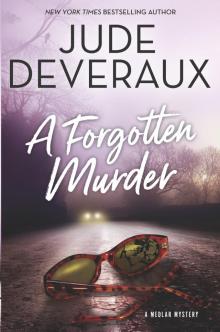 A Forgotten Murder
A Forgotten Murder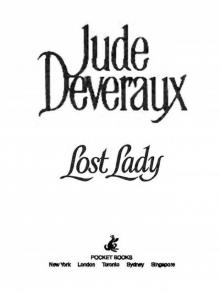 Lost Lady
Lost Lady Met Her Match
Met Her Match LEGEND
LEGEND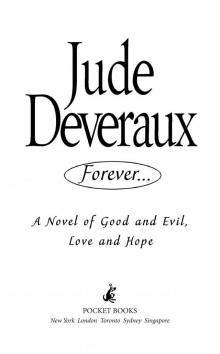 Forever: A Novel of Good and Evil, Love and Hope
Forever: A Novel of Good and Evil, Love and Hope Scarlet Nights: An Edilean Novel
Scarlet Nights: An Edilean Novel